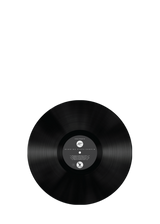Wyjątkowy muzyczny projekt Alba1913, płyta z muzyką Fryderyka Chopina nagrana przez finalistę Konkursu Chopinowskiego, Georgijsa Osokinsa.
01 Nocturne in C-sharp minor, op. posth. 5:14
02 Impromptu in G-flat major, op. 51 6:30
03 Prelude no. 17 in A-flat major, op. 28 4:00
04 Waltz in A-flat major, op. 64 nr 3 2:57
05 Waltz in F major, op. 34 nr 3 2:36
06 Waltz in E-flat major, op. 18 “Grande valse brilliante” 5:35
07 Ballade no. 3 in A-flat major, op. 47 8:09
08 Nocturne no. 17 in B major, op. 62 nr 1 7:48
Bonus track, nagrany w 2012 roku.
Partnerzy projektu: Yamaha, Akademia Muzyczna w Poznaniu.
W Konkursie Chopinowskim od początku mieliśmy swojego faworyta. Cieszymy się, że udało mu się dotrzeć do finału, mimo że nie grał w sposób konkursowy. Jeszcze bardziej cieszymy się, że przyjął nasze zaproszenie i że rozpoczęliśmy wspólną realizację ciekawego projektu - wyjaśnia pomysłodawca, właściciel marki Alba1913 Łukasz Rychlicki.
Charyzmatyczny finalista Konkursu Chopinowskiego, Georgijs Osokins z Łotwy, nagrał studyjny album w Poznaniu. Na płycie znalazł się repertuar wyselekcjonowany przez młodego pianistę z dorobku najsłynniejszego polskiego kompozytora.
Muzyczny projekt Alby1913
Zaprosiliśmy finalistę Konkursu Chopinowskiego do nagrania płyty studyjnej i postanowiliśmy wydać ją własnymi siłami. Wierzymy, że muzyka klasyczna może doskonale uzupełniać rozwój duchowy, a ten jest niezbędny, by utrzymać cały organizm w równowadze.

Dla ducha
– Wcześniej budując markę Alba1913 koncentrowaliśmy się bardziej na designie jako nieodłącznej części produktu, która pokazywała naszą wrażliwość estetyczną. Jednak w holistycznej pielęgnacji, jakiej hołduje nasza firma od stu lat, produkując kosmetyki i ziołowe lekarstwa, nie może zabraknąć rozwoju duchowego. Słuchanie muzyki klasycznej, zwłaszcza w takich interpretacjach, jakimi dzielił się Georgijs Osokins, absolutnie współgra z wizją piękna, jaką chcemy upowszechniać, czyli piękna jako harmonii ciała i ducha – mówi pomysłodawca przedsięwzięcia Łukasz Rychlicki, CEO Alba1913.

Do rejestracji nagrań studyjnych podeszliśmy nieszablonowo. Zaprosiliśmy doświadczonego w innej stylistyce inżyniera dźwięku, Mirosława Wdowczyka i za jego namową wybraliśmy nowoczesne brzmienie Auli Nova Akademii Muzycznej w Poznaniu, które docenił również łotewski pianista.

Nagranie zostało zrealizowane na tym samym fortepianie Yamaha, na którym Georgijs Osokins grał podczas Konkursu Chopinowskiego.








